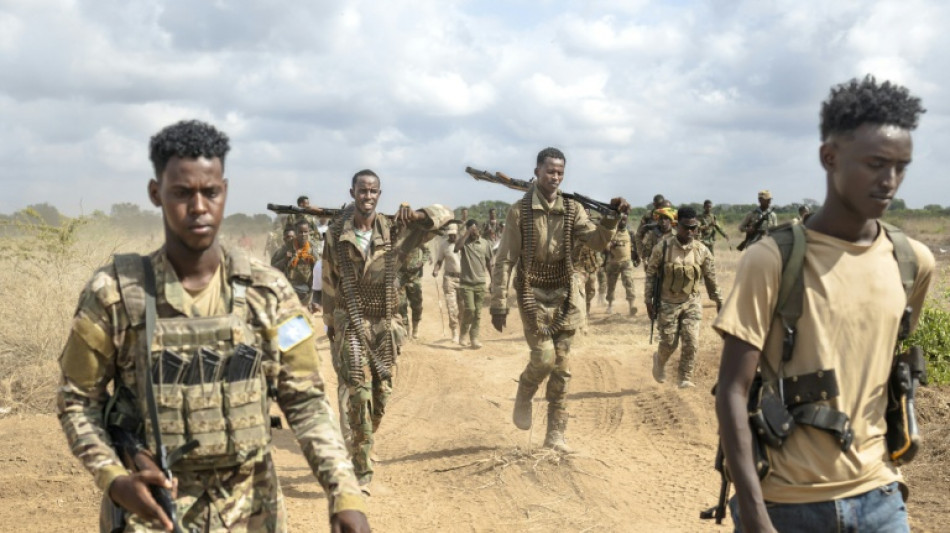
-
 Botswana warns diamond oversupply to hit growth
Botswana warns diamond oversupply to hit growth
-
Spaniard condemns 'ignorant drunks' after Melbourne confrontation
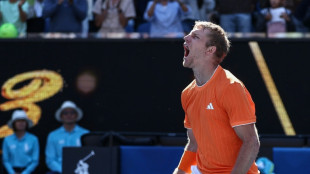
-
 Philippines to end short-lived ban on Musk's Grok chatbot
Philippines to end short-lived ban on Musk's Grok chatbot
-
Police smash European synthetic drug ring in 'largest-ever' op

-
 Japan to restart world's biggest nuclear plant Wednesday
Japan to restart world's biggest nuclear plant Wednesday
-
South Korean ex-PM Han gets 23 years jail for martial law role

-
 Alcaraz, Sabalenka, Gauff surge into Australian Open third round
Alcaraz, Sabalenka, Gauff surge into Australian Open third round
-
Over 1,400 Indonesians left Cambodian scam groups in five days: embassy
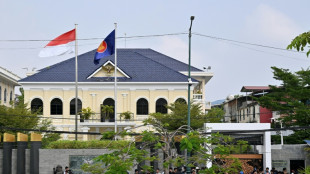
-
 Raducanu to 're-evaluate' after flat Australian Open exit
Raducanu to 're-evaluate' after flat Australian Open exit
-
Doncic triple-double leads Lakers comeback over Nuggets, Rockets down Spurs

-
 Bangladesh will not back down to 'coercion' in India T20 World Cup row
Bangladesh will not back down to 'coercion' in India T20 World Cup row
-
Alcaraz comes good after shaky start to make Australian Open third round

-
 Trump departs for Davos forum again after switching to new plane: AFP
Trump departs for Davos forum again after switching to new plane: AFP
-
Impressive Gauff storms into Australian Open third round

-
 Dazzling Chinese AI debuts mask growing pains
Dazzling Chinese AI debuts mask growing pains
-
Medvedev battles into Melbourne third round after early scare

-
 Denmark's Andresen upstages sprint stars to take Tour Down Under opener
Denmark's Andresen upstages sprint stars to take Tour Down Under opener
-
Turkey's Sonmez soaks in acclaim on historic Melbourne run
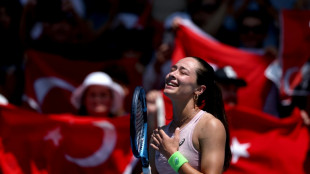
-
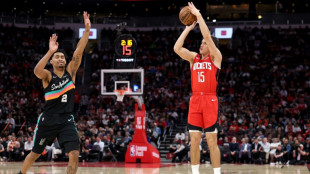 Sheppard leads Rockets to sink Spurs in Texas derby
Sheppard leads Rockets to sink Spurs in Texas derby
-
Sabalenka shuts down political talk after Ukrainian's ban call

-
 Trump's plane returns to air base after 'minor' electrical issue: White House
Trump's plane returns to air base after 'minor' electrical issue: White House
-
Barcelona train crash kills 1 in Spain's second deadly rail accident in days
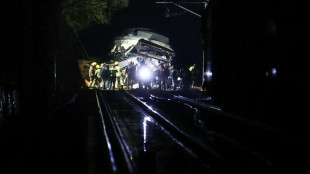
-
 North produces enough nuclear material a year for 10-20 weapons: S. Korea president
North produces enough nuclear material a year for 10-20 weapons: S. Korea president
-
Japan ex-PM Abe's alleged killer faces verdict
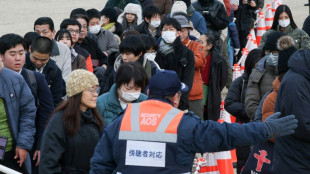
-
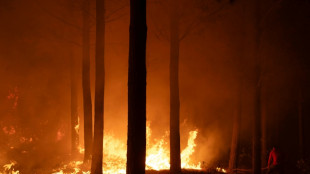 Climate change fuels disasters, but deaths don't add up
Climate change fuels disasters, but deaths don't add up
-
Stocks stable after tariff-fuelled selloff but uncertainty boosts gold

-
 What growth?: Taiwan's traditional manufacturers miss out on export boom
What growth?: Taiwan's traditional manufacturers miss out on export boom
-
'Super-happy' Sabalenka shines as Alcaraz gets set at Australian Open

-
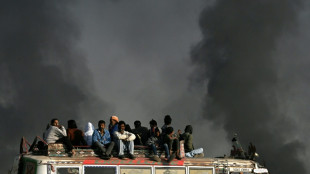 With monitors and lawsuits, Pakistanis fight for clean air
With monitors and lawsuits, Pakistanis fight for clean air
-
Sabalenka sets up potential Raducanu showdown at Australian Open

-
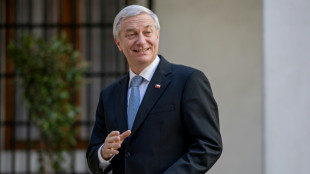 Chile president picks Pinochet lawyers as ministers of human rights, defense
Chile president picks Pinochet lawyers as ministers of human rights, defense
-
Osaka says 'I'm a little strange' after Melbourne fashion statement

-
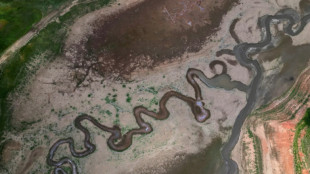 UN report declares global state of 'water bankruptcy'
UN report declares global state of 'water bankruptcy'
-
Trump heads for Davos maelstrom over Greenland

-
 Ukraine's Oliynykova wants Russian, Belarusian players banned from tennis
Ukraine's Oliynykova wants Russian, Belarusian players banned from tennis
-
Kasatkina cannot wait to be back after outpouring of Melbourne support

-
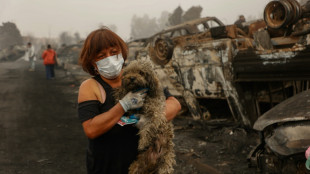 Chile blaze victims plead for help from razed neighborhoods
Chile blaze victims plead for help from razed neighborhoods
-
Russian minister visits Cuba as Trump ramps up pressure on Havana
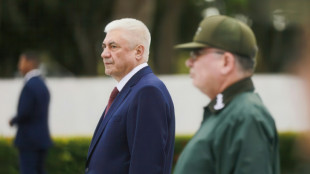
-
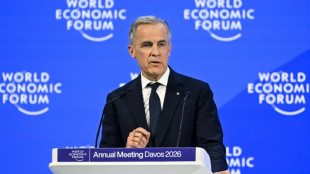 World order in 'midst of a rupture': Canada PM Carney tells Davos
World order in 'midst of a rupture': Canada PM Carney tells Davos
-
Senegal's 'historic' AFCON champs honoured with parade, presidential praise
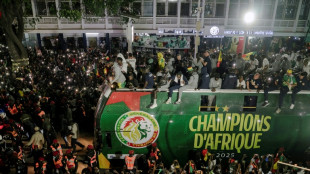
-
 Audi unveil new car for 2026 Formula One season
Audi unveil new car for 2026 Formula One season
-
Man City humiliated, holders PSG stumble, Arsenal remain perfect

-
 Vinicius, Real Madrid need 'love' not whistles: Bellingham
Vinicius, Real Madrid need 'love' not whistles: Bellingham
-
Late Suarez winner stops Champions League holders PSG in Lisbon

-
 Frank seeks Spurs 'momentum' after beating Dortmund
Frank seeks Spurs 'momentum' after beating Dortmund
-
Jesus' 'dream' brace at Inter fires Arsenal into Champions League last 16

-
 US regulator appeals Meta's court victory in monopoly case
US regulator appeals Meta's court victory in monopoly case
-
Netflix shares fall as revenue appears to stall

-
 Tottenham beat 10-man Dortmund to hand Frank stay of execution
Tottenham beat 10-man Dortmund to hand Frank stay of execution
-
Mbappe, Vinicius help Real Madrid thrash Monaco in Champions League


In Somalia, a shaky front line barely holds back the 'dogs of war'
The helicopter pilot is worried. Any more than 20 minutes in this shattered frontline village and Somalia's Al-Shabaab militants could start lobbing mortars at their position.
Roughly 1,000 Somali National Army (SNA) forces are holding Awdheegle, a strategic town roughly 35 miles (60 kilometres) outside the capital Mogadishu, with the help of an African Union contingent after it was retaken less than seven weeks ago from the Al-Qaeda-linked militants.
But their hold is shaky and the helicopter -- one of the few in the SNA fleet and showing its age -- is a tempting target for the insurgents just a few miles away.
"Five more minutes, and I would have left you," the pilot tells the reporters as they clamber back in, the chopper stuttering up and banking over the town's remains.
There is not much left to destroy in Awdheegle.
"I found my house demolished. I have nothing to rebuild it," said recently returned resident Abdi Osman Hassan, 65.
It is a similar story some 10 miles back towards Mogadishu at the deserted settlements of Sabiid and Canole.
The area is a cratered mess thanks to drone and air strikes, which SNA commanders said were the only option after the militants dug in, creating tunnels and littering the area with explosives.
Overwhelming firepower dislodged them in June, but the militants blew the bridge connecting the two settlements as they withdrew -- using so much dynamite that there was barely a scrap left to scavenge.
The new bridge, constructed with Turkish assistance, was recently completed under the watchful eye of a professional, if taciturn, Ugandan army unit.
A Turkish contractor, who spoke to AFP on condition of anonymity, was pessimistic after a month on the front line, where decent food and water are often scarce.
"If the powers do not behave and talk to each other, then the bridge...", he clicked his fingers to indicate a new explosion.
And right now, he said, "everyone is feeding the dogs of war."
- 'A global war' -
Somalia has been fighting Al-Shabaab since the mid-2000s, and settlements like Awdheegle, Sabiid and Canole have changed hands multiple times.
In 2022 and 2023, the national army made significant progress, recapturing some 200 towns and villages.
But the group launched a new offensive early this year, retaking some 90 percent of that territory -- including three critical bridges along the Shabelle River vital for access to the capital.
The army is pushing back.
Since 2007 it has relied heavily on multilateral African Union security forces, paid for primarily by Western countries.
But such support is shrinking. The latest guise of the African Union force -- known as AUSSOM -- was inaugurated in January with a $92-million shortfall in its planned budget, on top of an existing $100-million debt.
The SNA, always stretched thin, has been pushed to breaking point, say analysts.
Somalia's national security advisor, Awes Hagi Yusuf, conceded there were "challenges", but said new agreements with "non-traditional" partners -- the likes of Turkey and the United Arab Emirates -- were helping to fill the gaps.
"The fight that we are doing, it's not confined and limited to Somalia. This is a global war," he said.
- 'Kicking the ball' -
Somalia is likely to lean increasingly on bilateral deals with individual countries, including neighbours like Kenya and Uganda.
But security analyst Samira Gaid is sceptical.
"Funding is always going to be an issue, even for these bilateral forces. It's not like the (Ugandan army) is so well resourced that it can afford to deploy without an end," she said.
"There's a lot of kicking the ball to the next stage, hoping somebody else has to deal with it," she said.
As well as funding shortfalls, Mogadishu's elite is also distracted by elections scheduled for next year.
"Whenever there is this political contention, everything else is neglected," said Mahad Wasuge, of the Somali Public Agenda think tank.
- Cannot rebuild alone -
Yusuf said the government had retaken "the whole area" within 300 kilometres of Mogadishu and plans next to recapture bridges and villages in Upper and Middle Shabelle, pushing further into Al-Shabaab territory, though he did not give a timeline.
But towns like Awdheegle, or Bariire, well within the "liberated" zone, felt anything but secure during AFP's visit.
Soldiers were always nearby when AFP spoke to locals and on one occasion in Bariire motioned a woman to say no when asked if she feared Al-Shabaab's possible return.
"We are peasants, our houses were destroyed, and we have no help so far," said Muslimo Hassan Isaq, 56.
She had fled to Mogadishu's outskirts, living in a makeshift home, and leaving her farm abandoned for eight months.
"I don't know where to start," Isaq said, "We need to be looked at and cared for. I cannot rebuild myself."
Neither side has much legitimacy with the war-weary population, said Gaid.
All that matters, she said, "is who stays longer and who provides some modicum of security and justice when they're in place."
B.Baumann--VB
